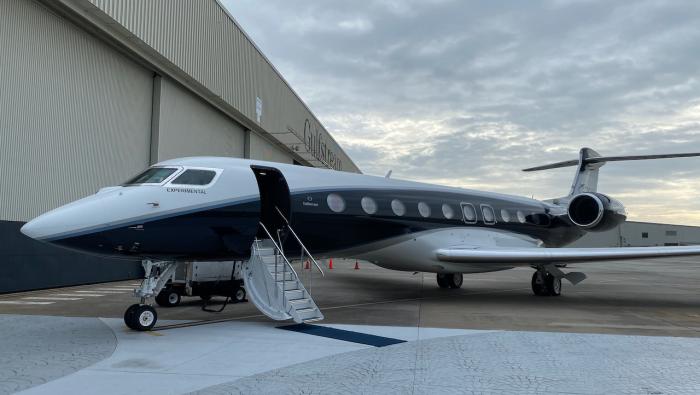EBAA (Booth B17) will appoint its first secretary general just after EBACE ends, effectively replacing former CEO Brandon Mitchener, who departed in March. “Last week we did two days of interviews with a great line-up of candidates. I am confident we will have the secretary general—which is the new title—by the end of the second quarter,” EBAA chairman Juergen Wiese, who also runs BMW’s corporate flight department, said.
Regarding EBACE 2018, he said, “We are expecting around the same number of visitors as last year, around 13,000, but we have 418 exhibitors, which is slightly up on last year. We also have 54 aircraft in the static display, which means it is full, but we have a waiting list as well. It could be larger if the airport would allow us to have more space.” Wiese added that the show has become increasingly international, with exhibitors from more than 100 countries.
Wiese put EBAA’s current state of change in a positive light, saying it has brought the board closer to the secretariat. “That’s good. We want to have the board more involved in the future.” He said having experts on the EBAA staff was not always necessary if the expertise could be tapped form the high-level executives on the board.
Meetings with officials in the European Union institutions as European governments have been stepped up, he said. A new Safety Working Group was established last year and led to a safety conference being held in Cologne in February in partnership with EASA. The agency, said Wiese, “likes to see the issues we have in business aviation.” He noted that a similar conference would be held in November.
Currently, the big issue for EBAA is flight-time limitations, said Wiese, and the association has a “very active” working group focused on this issue, following the introduction of new European regulations. “We’re completely different to the airlines, although our pilots sometimes work in a similar way to cargo airlines,” he said.
Another issue is the slot regulation, which is still on hold, “But airport access is not only an issue at large airports, it is also a problem at other airports, and for example there are sometimes restrictions due to aircraft noise,” he said. “Yet airports around the big hubs—sometimes referred to as reliever airports—are very useful to business aviation. Often the all-weather capability is not there, either.”
Wiese pointed out that most business aircraft are very well equipped. “We could use curved approaches,” he noted, “but the infrastructure just isn’t there.”
EBAA is very involved in the augmented-approach-to-land project—equivalent to enhanced flight vision system allowance in the U.S. “We could get down to even Cat 2 [minima] on approach and in the longer term future even Cat 3a,” opening up more airports in inclement weather. Wiese said the current limitations “affect smaller operators the most,” so EBAA is keen to represent their interests to improve the operating environment.
He stressed that EBAA also has a key role in keeping its members informed of both new regulations that are coming, and how existing EU regulations are being applied around the region. “We try to give them a table of how they are implemented in various countries.”
Turning to Brexit, Wiese said, “The only certainty is uncertainty” at present. This is very frustrating for operators, though he deems it “highly unlikely that the UK won’t remain within EASA.” He gave the example of simulators within the EASA region, which are “mostly evaluated by the UK CAA on behalf of EASA.”
This is just the latest area—along with EASA approvals such as Part 145, lease and finance deals, and spare part shipping—to be subject to uncertainty. “And we have only nine months to go,” subject to a possible transition period being agreed to extend this to the end of 2020, said Wiese. “Operators need to make decisions—and small operators don’t have the resources to plan for all the possible contingencies.”
Last, but not least, Wiese turned to skills and training. One of the big themes of this year’s EBACE being the launch of EBAA’s “Millennials Report,” as part of its Expanding Horizons campaign.







